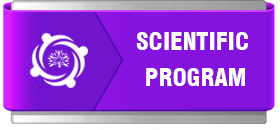
John McIntosh & Elizabeth McIntosh
Mackay Superclinics and Exqisit Life Foundation, Australia
Title: What impact positive mindfulness cognition (PMC) and the TUFMINDs app has on mental resilience and other mental health parameters?
Biography
Biography: John McIntosh & Elizabeth McIntosh
Abstract
Statement of the Problem: With the impacts of mental illness and suicide rates rising across communities, practical solutions are needed to save lives. This research was used to measure if Positive Mindfulness Cognition and the TUFMINDs App created measurable changes in attitudes, coping skills, mental illness scores, workplace function, and mental resilience to assess potential benefits for community interventions.
Methodology & Theoretical Orientation: Aims: Before and after scores of: (i) Individuals actual versus perceived optimism scores (LOT-R) (ii) Mental resilience scores (BRC score) (iii) Depression, anxiety and stress scores (DASS-21) and perceived stress levels at work (iv) Workplace atmosphere, engagement, trust, and communication. PMC is a dynamic structured mindfulness process that improves an individual’s awareness of their negative thoughts and has a structured process to change those into positive alternatives. It also provides positive communication skills, cultural standards, elimination of drama, gossip and sarcasm and positive management of conflict and complaints. The studies were performed in 570 individuals in multiple workplaces.
Conclusion & Significance: Individuals are 15% less positive than they think they are. This score fell by a dramatic 40% when faced with every day (non-critical) challenges. This research shows that the program is effective at all the above parameters consistent and across multiple worksites. This results in individuals being more resilient with a lower risk of mental illness and suicide. Additionally, it improves individuals willingness to enquire and take action when faced with a suicidal person. The potential to benefit individuals, businesses and communities are huge. Further research to confirm these numbers is required.

